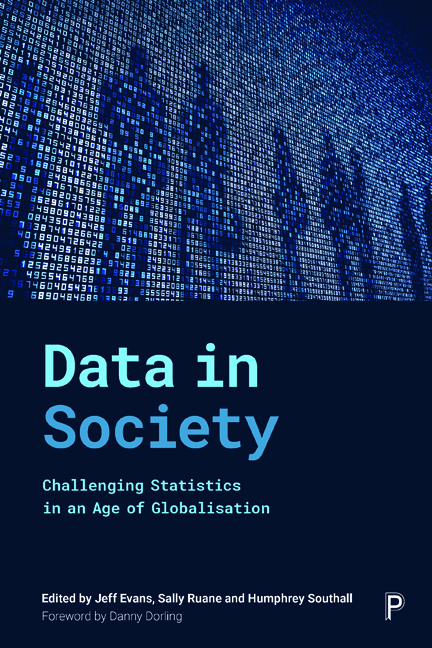Book contents
- Frontmatter
- Contents
- List of figures, tables and boxes
- Notes on contributors
- Foreword
- Preface
- General introduction
- Part I How data are changing
- Part II Counting in a globalised world
- Part III Statistics and the changing role of the state
- Part IV Economic life
- Part V Inequalities in health and wellbeing
- Part VI Advancing social progress through critical statistical literacy
- Epilogue: progressive ways ahead
- Index
Part I - How data are changing
Published online by Cambridge University Press: 30 April 2022
- Frontmatter
- Contents
- List of figures, tables and boxes
- Notes on contributors
- Foreword
- Preface
- General introduction
- Part I How data are changing
- Part II Counting in a globalised world
- Part III Statistics and the changing role of the state
- Part IV Economic life
- Part V Inequalities in health and wellbeing
- Part VI Advancing social progress through critical statistical literacy
- Epilogue: progressive ways ahead
- Index
Summary
The fundamentals of information technology are not new: the first working electric telegraph was in 1816, and the speed of light was just as fast then as now; the first census to be analysed by machines was the US census of 1890, and statisticians were very routinely using digital computers 40 years ago. All that has really changed since then is everything has got cheaper – much cheaper: the costs of data processing, data storage and data transmission have all fallen by a factor of between 10,000 and 10 million. The ultimate driver was arguably Moore's law, the semiconductor industry's rule of thumb that the density of transistors doubled every two years: smarter electronics enable not just faster processing but also squeezing more data onto the same disk, or down the same optical fibre.
Cheaper computing means statisticians need no longer trek to remote mainframes, but the larger consequence is that vastly more data is recorded, assembled centrally and analysed: ‘big data’. For example, in the 1960s most shops had cash registers but they were not networked, and chains gathered in only the most basic summaries of transactions; today, a central database records every item sold, often identifying the individual customer, and the Economist magazine declares that ‘data is the new oil’: profits flow not out of the ground but from using data to design products and to target advertising at specific customers. The chapters in this part explore the implications for society of this vast expansion of data held about us, one central issue being who controls it: today, companies often know far more than governments. Another more technical consequence is that historically we could often only analyse a sample, hopefully representative; today we often have what is claimed to be ‘population data’, but some groups may still be excluded.
Kevin McConway (Chapter 1) explores the occupational landscape of the data professions. He compares traditional statisticians with the new breed of ‘data scientists’, and also examines how data journalists, campaigners and academics such as economists and psychologists work with statistics. He considers how these diverse approaches and orientations shape the discipline of statistics and how it is seen. He asks who presents the results to which audiences, arguing the manner of communication must reflect the audience.
- Type
- Chapter
- Information
- Data in SocietyChallenging Statistics in an Age of Globalisation, pp. 9 - 12Publisher: Bristol University PressPrint publication year: 2019

